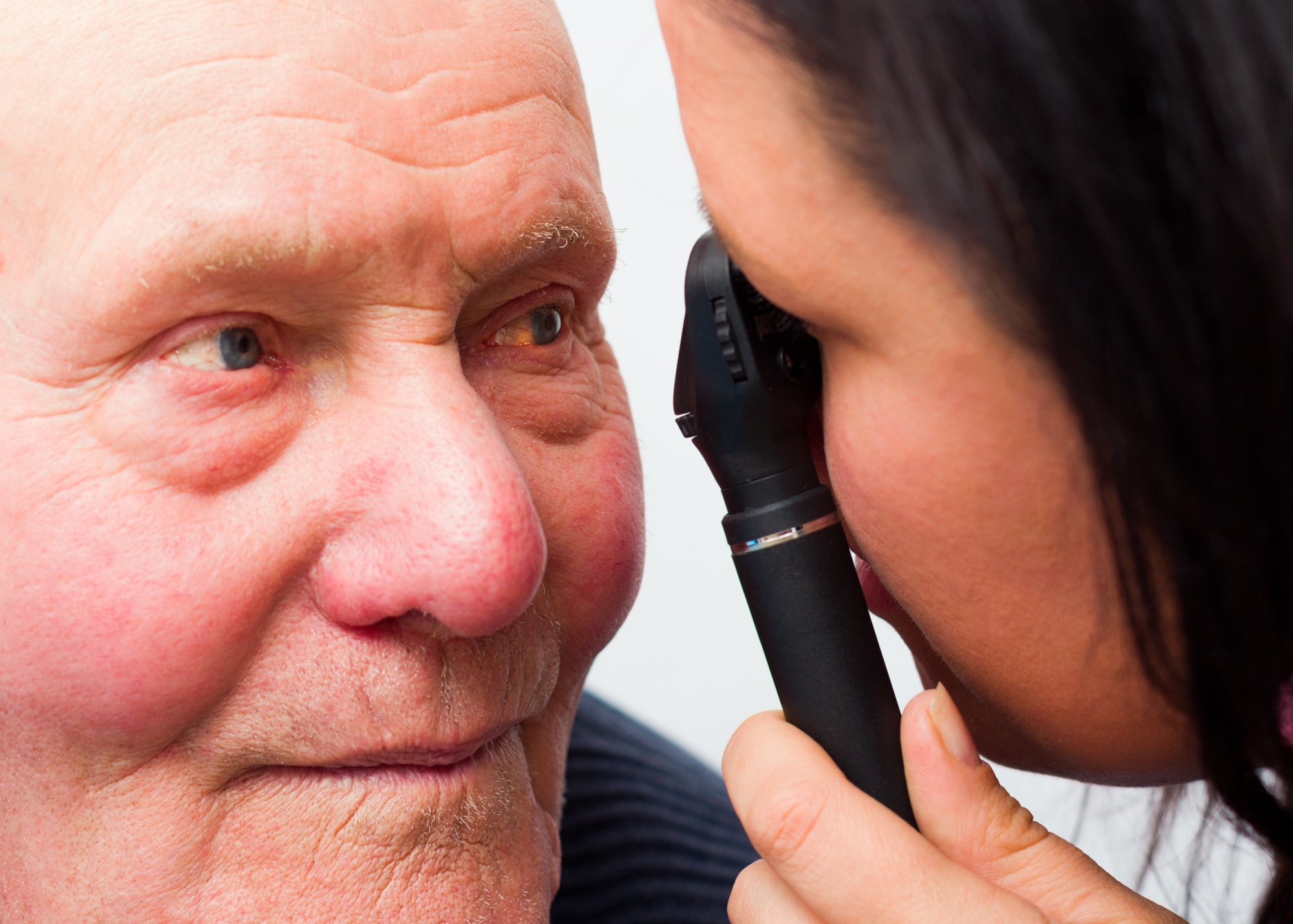Preventing Low Vision Issues During AMD Awareness Month this February
Category:

February is national Age-related Macular Degeneration (AMD) and low vision awareness month. The month is great time to review various ways you can help your aging parent to reduce his risk of having AMD.
Affecting 1.6 million Americans, age-related macular degeneration is the leading cause of low vision and blindness in people 60 years old and older. AMD occurs when the center part of the retina (called the macula) wears down, causing vision issues and in come cases, blindness. If your parent feels he is having trouble seeing fine print (and his eyeglass prescription is up-to-date) or has dark cloudy areas in his field of vision, he might have AMD and should go see a doctor as soon as possible.
During the month of February, and AMD Awareness Month, it’s a great time to talk to your parent about this disease and some of the steps he can take to have healthy eyes. While AMD is not always preventable and is often hereditary, implementing these steps will help lessen the chance of your parent’s vision deteriorating by providing his eyes the nourishment they need as well as the protection.
- Eat foods that support good eye health. A diet high in leafy green vegetables such as kale and spinach, as well as eating plenty of fresh fruit will provide your parent’s body the nutrients needed for good vision. Orange-colored fruits such as cantaloupe and apricots are high in beta-carotene, a form a vitamin A, which helps with night vision and the eye’s ability to see in the dark. If your parent is unsure how to prepare any of these fresh fruits and vegetables, your elderly care provider can help him prepare them for both meals and snacking.
- Eat plenty of fish that are high in omega-3 fatty acids. If your parent is able, have him create meal plans to enjoy fish such as salmon and tuna at least twice a week. He can sit down with his elderly care provider and map out his menu each week to make sure he fits oily fish into the routine. The retina needs two types of omega-3 fatty acids to function at its best capacity – DHA and EPA. Your parent can get plenty of both by enjoying these fish. Whether fresh, frozen or canned, consuming fatty fish will benefit your parent’s eye health.
- Protect the eyes when outside. When your parent spends anytime outside, encourage the use of sunglasses and even a hat with a brim. If he needs glasses now, either purchase some wrap-around sunglasses or prescription sunglasses. These will protect his eyes from blue light and damaging ultra-violet light.
- Visit his eye doctor regularly. The early signs of AMD are not always apparent. Having your elderly care provider bring your parent in for regular eye appointments will help ensure it gets caught early if his eyes are beginning to be affected by it.
Spend this February celebrating AMD Awareness Month by creating the awareness of the disease as well as celebrating the sight your parent does have, and all the beautiful things he can see in the world. You never want to take that for granted.
Source: https://www.webmd.com/eye-health/macular-degeneration/age-related-macular-degeneration-overview#1
Subscribe
Date: January 29, 2021
Category:

